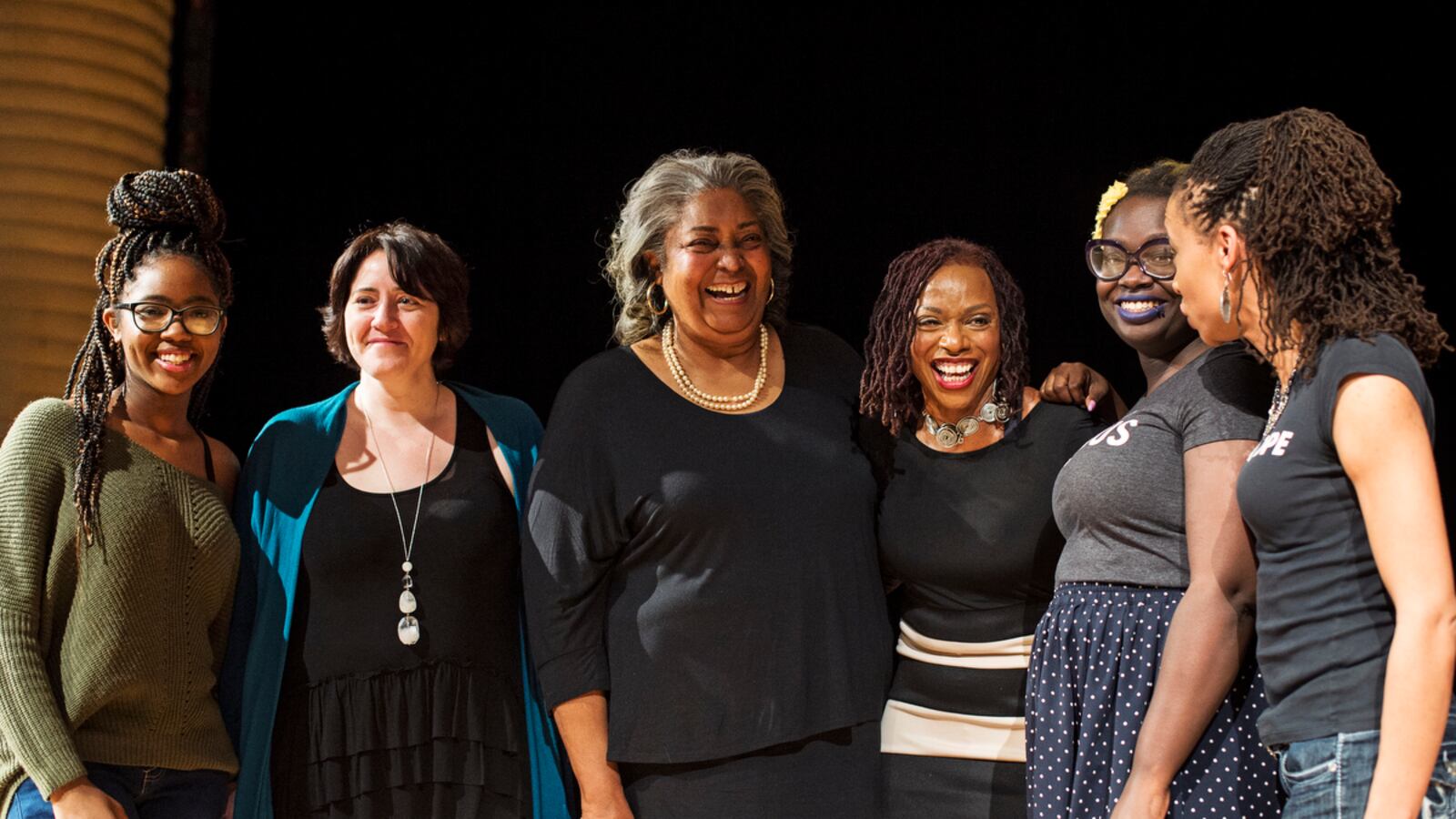“I got into a public school. I didn’t matter any more,” high schooler Imani Harris concluded after learning about how Detroit’s schools operate.
That depressing realization was a turning point in Harris’s efforts to push the school system to serve students better, she recounted in the story she told during “School Days,” the event Chalkbeat hosted with The Secret Society of Twisted Storytellers March 17.
The event — held at Detroit’s Charles H. Wright Museum — celebrated Chalkbeat’s launch in Detroit. Storytellers worked with Satori Shakoor, The Secret Society of Twisted Storytellers’ host, to craft tales of despair, hope, inspiration, and indignation over the state of Detroit’s schools.
Check out the full live stream here, or scroll down for edited highlights from each storyteller. And while this event might be over, Chalkbeat’s work helping people in Detroit tell the story of the city’s schools is not. Please get in touch if you have a story to tell.
Asenath Andrews is a Detroit Public Schools graduate and former principal of the now-defunct Catherine Ferguson Academy, which served teen mothers.
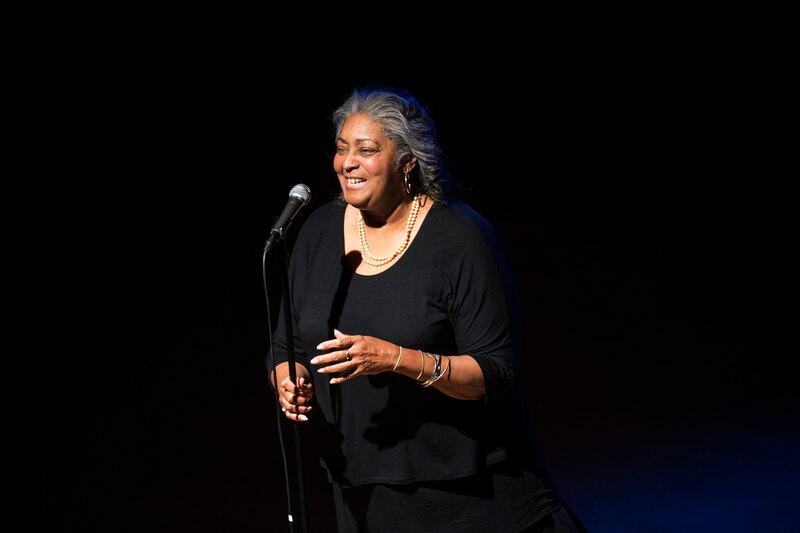
(All photos Erin Kirkland for Chalkbeat Detroit)
“Every single girl who graduated from Catherine Ferguson Academy was accepted to a two- or four-year college before she graduated. We traveled all over the country. We did summer school on a college campus. I’m a first-generation college graduate. My 98-year-old mom who is here tonight never missed a graduation. I knew that girls needed to be on campuses because you only have to be on campus a few minutes before you meet somebody who’s dumb as a brick. So you don’t have to be oh-so-smart to go college, you just have to be determined. We went all over the country so that the girls could see.”
At one point, Catherine Ferguson students built a garden and maintained a farm with cows, chickens, a goat, and other animals.
“We planted seeds all over that playground. We grew every kind of vegetable that would grow in Michigan. We even grew sweet potatoes. But what we planted that was more important, we planted the seeds of being in our girls. We planted confidence; we planted strength. We built a barn and if you can build a barn, you’re not gonna take a lick. It’s like ‘I’m my own woman, I can do what I want to do.’ … Do I miss my school? I miss my school every day. But I have girls everywhere. I have artists and musicians and business owners and doctors and nurses and lawyers; one politician, not crooked. All kinds of girls everywhere. Remember that every girl who went to Catherine Ferguson was obligated to leave a trail because Catherine Ferguson was a place.”
Brittany Rogers is an educator who left charter schools for the hope of job security as a Detroit Public Schools teacher — at a time of crisis for the public school system.
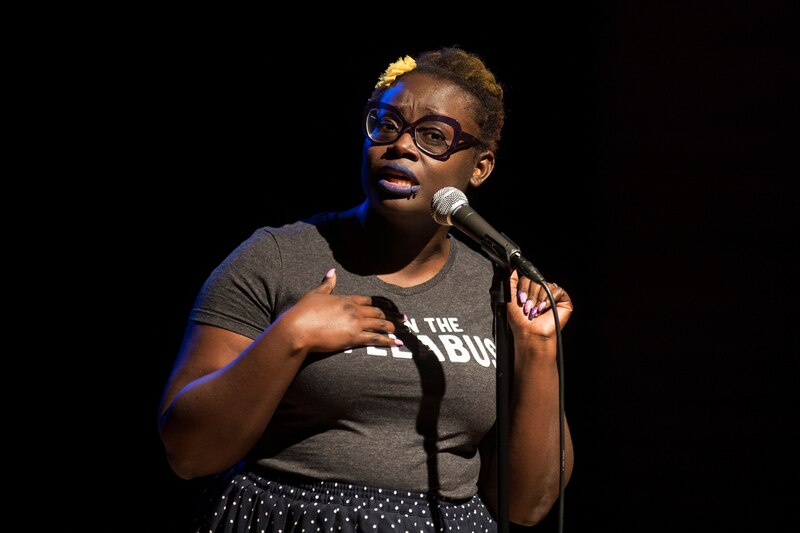
“I woke up one morning and realized that charters had all the issues of public schools but somehow they managed to come out as the golden child. We had the same pay. We had the same community of students. Our test scores were not better. Our buildings were not better. In fact, I started to feel like I was missing a few things. I didn’t have a union to fight for a wage increase. I didn’t have pension protection. So, I slept on it and I said, you know what I’m going to do? I’m going to apply to Detroit Public Schools instead where at least, if I’m going to have the same issues, I can have a bit more job security. So I applied. Right before I got accepted there was a series of protests. DPS was talking about not only cutting wages, again, but also increasing class sizes to 43, which, you know, was a bit scary, shall we say. But by that point I had already been in charters and I had those issues before. And again, I figured, at least I can have the same issues with a bit more job security. So, I put on some really warm clothes and I joined the protests, figuring that I should start standing up for the rights of the district I knew I wanted to belong to.”
Erin Einhorn, senior correspondent at Chalkbeat Detroit, shared the tale of her choice to move her family from New York City to Detroit. (Read more of her story here.)
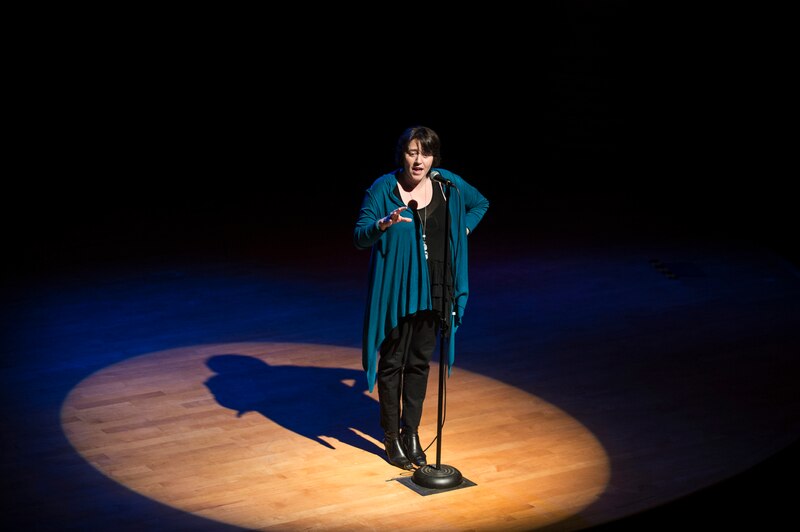
“I was out in West Bloomfield last year, which is where I grew up and I ran into a high school classmate. It was actually someone I went to kindergarten with, so we had spent our childhoods together. I hadn’t seen her in years. So, it was, ‘Oh, hey, how are you?’ We hugged and you know, it was this great kind of reunion. And then she kind of got this sort of puzzled look on her face; and I was there with my daughter, holding her hand. She kind of looks at me; kind of looks at my daughter. She looked really confused and she says, ‘You live in Detroit?’
“I was like, yeah. Then she asks, “So do they have any schools there with like white kids? And I’m like, ‘Well you know, not a lot.’ There’s not many schools in the city of Detroit that enroll a lot of white children. Her question made me really uncomfortable but if I’m being honest, I don’t love the idea of my kid being the only white child in her class. My daughter’s five years old. She starts kindergarten in September. If I send her to school in Detroit, the odds are she’s going to look very different from a lot of her classmates. But I also hate the idea of her being in a classroom with kids who look exactly like her. And I hate that I have to choose. I hate that we all have to choose to either bear this burden of being different or bear this burden of being the same and not getting to live in the real world.”
Chastity Pratt Dawsey, a DPS graduate who is a journalist at Bridge Magazine, shared her story of how one teacher’s encouragement launched her from a life of poverty to becoming the first college graduate in her family.
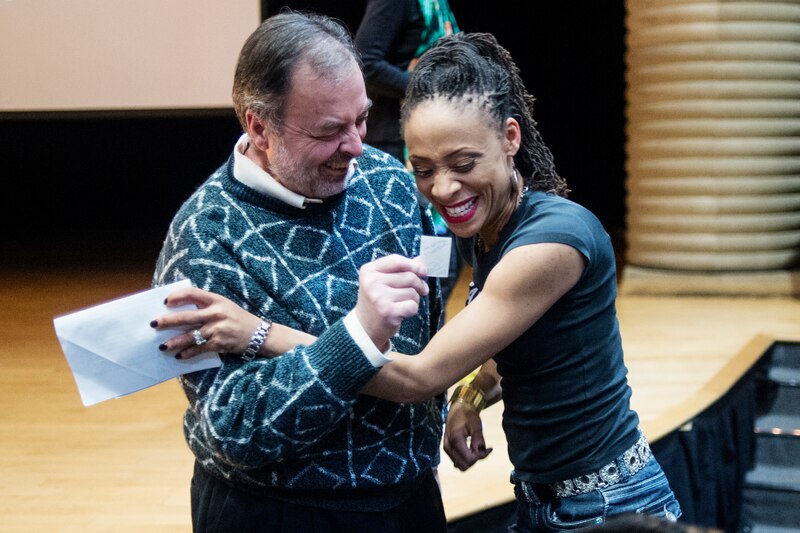
“People ask me all the time, ‘Chastity, why have you been writing about these schools for so long. Fifteen long years. Well, actually it started for me in seventh grade at Farwell Middle School on the city’s East Side. Okay, so, one day, somebody had this bright idea. We’re gonna pass around two sheets of paper. One sheet of paper had all the girls’ names on it. The other sheet of paper had all the boys’ names on it. It was like a beauty contest, right. We had to rate each other from zero to five. So, it’s 1986, seventh-grade girls are wearing those Guess jeans and all them bright colors. Getting their hair done at Vantinus hair salon and wearing those belt buckles with your name on it. (I still want one of those.) Those were the girls who got the fours and the five. I had a played-out jheri curl. I wore my cousin Marla’s hand-me-downs. So all the boys; all the boys in seventh grade, gave me zeroes. I was the only girl who got all zeroes.
So while we’re standing around talking about all my zeroes, little did we know that the math and academic games teacher, Mr. Stevens was listening. Now, Mr. Stevens had taught me that you pronounce your name how it’s supposed to be pronounced: Chas-tity! So, this day, I hear Chastity! I’m already having a bad day and now everybody is looking at me and it feels like there’s a spotlight on me, and the whole wold is looking at me, and it feels like the whole room is throbbing. I’m having a bad day. What? What he said I will never forget. Chastity will be a success at whatever she chooses to do. … At this point in my life I’m only good at two things: looking after kids because I was the big sister and role model to eight, and I was good at school — mostly reading, writing, I had won the Area E Regional Essay Contest. Nobody had ever told me where these two things would get me and they damned sure never told me I was going to be a success. I looked around the room and some of those kids, the ones giving me zeroes even, they were nodding their heads. They were agreeing with Mr. Stevens. They might have thought I was ragtag. But even they thought I was going to be a success. So, right there in the seventh grade at Farwell Middle School I went from being a zero to somebody. I was gonna be a success.’’
Imani Harris, a 17-year-old senior at Renaissance High School, recounted her decision to write open letters to Michigan lawmakers and citizens about problems at her school.
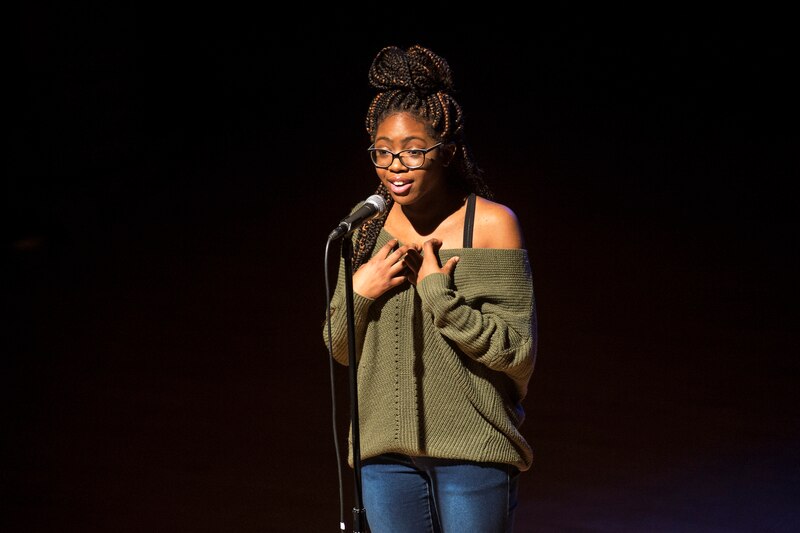
“I was upset, I was angry, but I didn’t know what to do. I joined a collective called 482 Forward. In this collective, it’s parents, it’s teachers and students and community members who all want to work together and change things and fight for equity in education. When I joined I found my fit. I found that we could fight for something. We began to get into the logistics of things happening, understanding so, this is why this happens, this is who funds this, and all the money for this is going here. You don’t have a teacher because of this. Now, when I figured that out, why things happen, I was perturbed. I was boiling mad to realize that as a student in Detroit if I’m not paying for my education it doesn’t matter to nobody else because at private school when I was paying for my education everything was fine. I got into a public school. I didn’t matter any more. If I had went to a school in West Bloomfield it wouldn’t have happened that way. If I had went to a school anywhere else where students didn’t look like me, it wouldn’t have happened that way. …My story is a story of finding myself in advocacy and realizing, wait a minute, I can make a difference and I don’t have to be 25 to do it. My story to any teenager out here, to any teenager who’s ever going to see any of this, is, we don’t have to be grown to make a difference. This is our education.”


